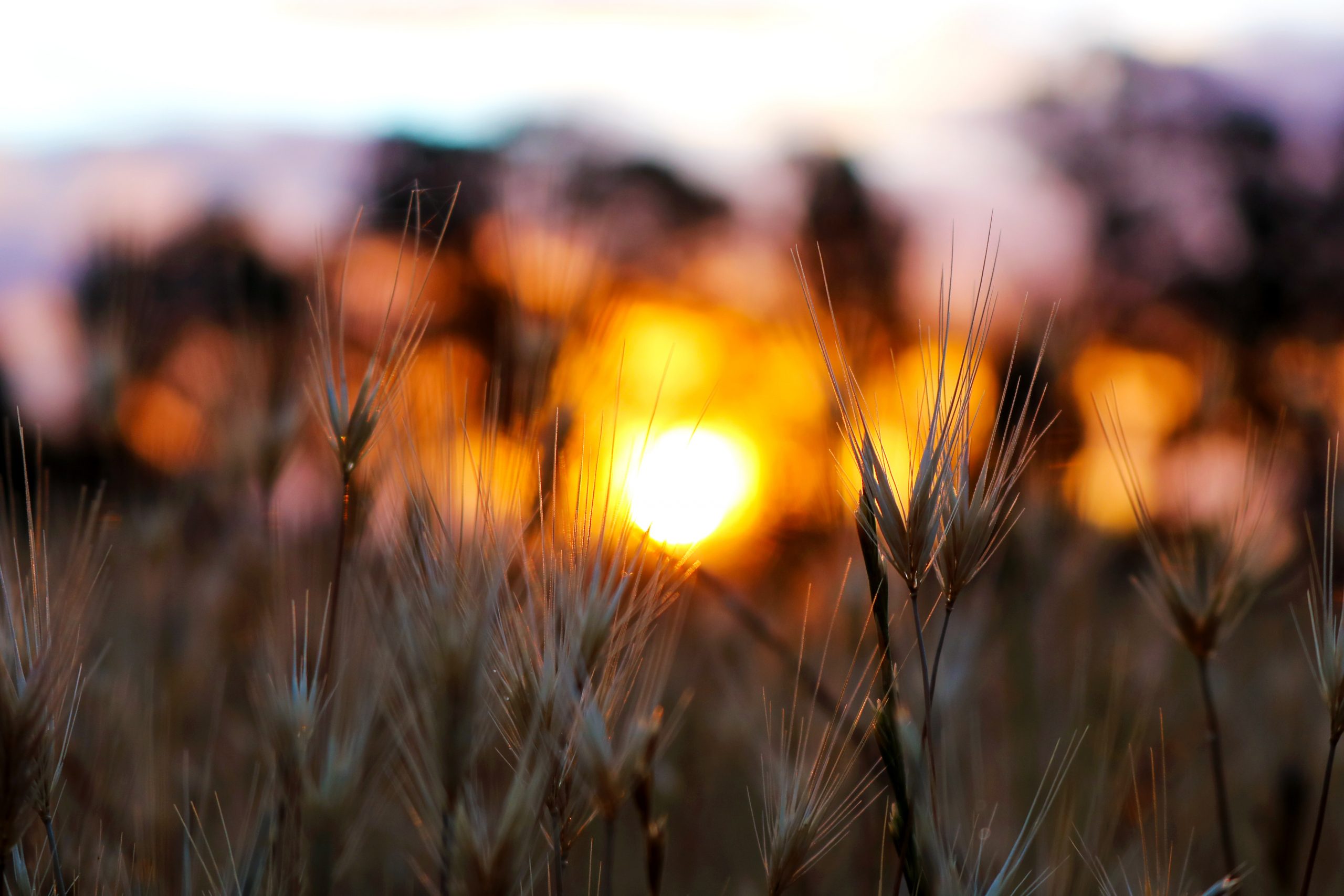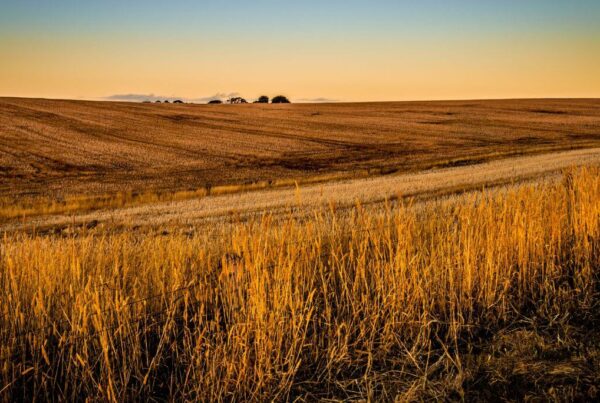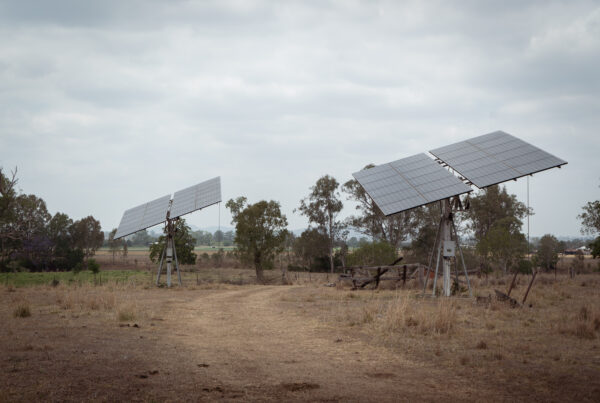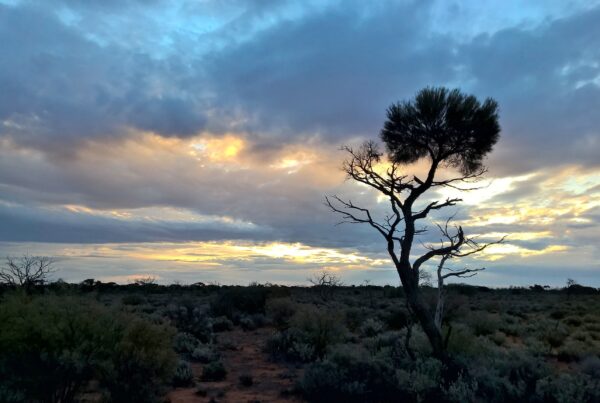1 December 2020
Gas-led recovery leaves farmers high and dry: New briefing paper
Australian farmers, and the communities where they live, face negative environmental, economic and social consequences if the Federal Government’s plans for a ‘gas-led recovery’ go ahead, new analysis commissioned by Farmers for Climate Action has found.
The briefing paper, written by the Australian Farm Institute, found that while gas expansion could worsen climate change, deplete or contaminate groundwater, and harm farmers’ mental health, a ‘renewables-led’ economy would have win-win outcomes for farmers and the economy.
Farmers for Climate Action chair Charlie Prell said: We are already feeling the impacts of climate change out here.
“Gas is a fossil fuel. Extracting and burning more gas will only make climate change much worse. Worrying about the impact of gas expansion on our groundwater, land, income, and the future of farming keeps us awake at night.
“Farming is hard enough already and climate change is adding to the difficulty of running sustainable farms. Instead of greenlighting projects like Santos’ Narrabri project and wasting taxpayers’ money on gas, the Federal Government should back a renewables-led recovery that creates jobs and growth without wrecking farming livelihoods,” Mr Prell said.
Bentley mixed farmer Meg Nielsen, who together with her husband Peter were part of a community that successfully fought a proposed coal seam gas development in the Northern Rivers a few years ago, said: “Climate change and water scarcity are existential threats for farmers, and gas expansion increases the risk of both.
“Farmers are on the front line of climate change and any increase in temperature is madness. The science says that we need to cap temperature rise at well below 2°C to have a safe hospitable climate. To do that, we can’t have new gas.
Her husband Peter added: “Australia is dealing with the major threat of Covid-19 by listening to the science and experts. COVID-19 was a major threat to Australians, and we dealt with it by listening to the science and experts. Climate change and the gas industry are major threats to farmers, and here too governments must heed the science and expert recommendations for a renewables-led recovery to protect our livelihoods too.”
Briefing paper author and AFI executive director Richard Heath said: “The co-existence of gas production and farming comes at a compromise to agriculture. Above-ground impacts can range from minimal to severe, but the potential below-ground impacts to aquifers is very difficult to measure and could be catastrophic.
“Any decision that poses such a great risk to water security must be based on robust evidence. When it comes to gas production and agriculture, we just don’t have that assurance that modelling is accurate, that water – and the farmers who rely on it – will be safe.
“Rather than expanding gas production, we should be erring on the side of caution to protect our farm sector, especially when alternative renewable energy sources that carry much less risk for farming communities are rapidly maturing.”
A full list of farmers and other talent is below. For interviews, contact Vai at 0452 290 082.
Images here: https://bit.ly/2VhmzmV
TALENT AVAILABLE
RESEARCH AUTHORS
Richard Heath, Executive Director, Australian Farm Institute, and Katie McRobert, General Manager, Australian Farm Institute, can talk about the briefing paper’s findings, and go into detail about the various risks that a ‘gas-led recovery’ poses to Australian farmers—as well as the many ways in which a renewables-led recovery will benefit farmers and rural communities. Location: Sydney
FARMERS
NSW
Charlie Prell, Chair of Farmers for Climate Action and Crookwell farmer, can talk about why climate change and new gas projects present an existential threat for farmers across Australia, and why investing in renewable energy can supercharge economic growth for farmers and rural communities. Location: Crookwell
Meg Nielsen, mixed farmer, Bentley, can talk about her experiences opposing a coal seam gas development and her worries about the future.
David Quince, livestock producer, Tambar Springs, can discuss his long opposition to gas developments in his region, and his opposition to the Narrabri ga project.
David Chadwick, Primary producer, stock agent and feedlot operator near Coonamble NSW, can talk about how his farm relies on the Great Artesian Basin as its only water source, and how contamination or depletion of the aquifer would be devastating for his business, and many others in the region. David can also talk about the extensive use of solar power on his property.
Peter Wills, mixed farmer, Breeza NSW, can talk about the economic risks associated with allowing gas pipelines and exploration on farming properties, and why between the track record of gas companies that have been charged with contaminating aquifers and the impacts on climate change, no landholder in the local communities supports new gas projects or infrastructure.
Kate Mildner, mixed farmer from Warren NSW, can talk about why the proposed Western Slopes gas pipeline would likely pollute local waterways, and the danger of laying high-pressure gas pipelines across vertisol (soils that shrink and swell with water content). Kate, whose farm is powered by a 10KW solar system and solar pumps, has also seen severe climate impacts on her farm, destocking entirely at one point, and watching the local river go dry for the first time in 60 years.
VIC
Fergus O’Connor, beef farmer, Berrys Creek, can talk about his concerns about the potential for gas developments in Victoria’s highly productive Gippsland region.
Karrinjeet Singh-Mahil, dairy farmer, Crossley, can discuss the risks of gas expansion in western Victoria and the importance of Australia shifting its emissions trajectory. Limited availability Tuesday.
WA
Dale Park, Badgingarra beef farmer and Farmers for Climate Action board member, can talk about Western Australia’s growing emissions problem and the dangers of gas expansion in his state.
ENERGY EXPERTS
John Tough, former coal seam gas worker, former Narrabri councillor and long-time Narrabri resident, can talk about harrowing first-hand encounters with the deadly impact of CSG on Pilliga wildlife, and how the Narrabri Gas project has divided the town and stressed farmers, despite a majority of the community opposing the project.
Dr Madeline Taylor, Energy law and policy expert, University of Sydney, can talk about why gas is in decline, the link between the Narrabri Gas Project and Morrison’s so called “gas-led recovery” and the risk of taxpayers being burdened with a stranded asset and why investment into new renewable energy zones is the fastest option to achieve our needed energy transition and meet our Paris Agreement targets.
For interviews, contact Vai at 0452 290 082.






